by Brian Hioe
語言:
English /// 中文
Photo Credit: Gage Skidmore/CC
STRANGE TIMES are ahead of us globally, with an unexpected Donald Trump victory for 2016 presidential elections in America. A Trump victory was not expected by most, with a Reuters survey just weeks before elections suggesting that Hillary Clinton had a 95% chance of winning the presidency. But rapid changes in election modeling shortly before elections suggested that Trump was, in fact, polling far closer to Clinton, even if few still predicted a Trump victory. Perhaps the ultimate results of 2016 American elections hazard a warning about blind faith placed in statistical modeling and polling as predicting political results, without any allowance for last-minute contingencies.
As is well-known, 2016 presidential election season in America has been quite a bizarre one. There would seem to be no other election season in living memory in which a presidential candidate of a major political party threatened to jail the other candidate to once elected, or insisted on having a large penis size on national television. After a sudden entrance into politics after a career as a business mogul and reality television celebrity, then unexpectedly rising to become presidential candidate of the Republican Party, Trump is now president of the United States, the most powerful country in the world. Trump will come into power with the Republican Party having control of the House and Senate.
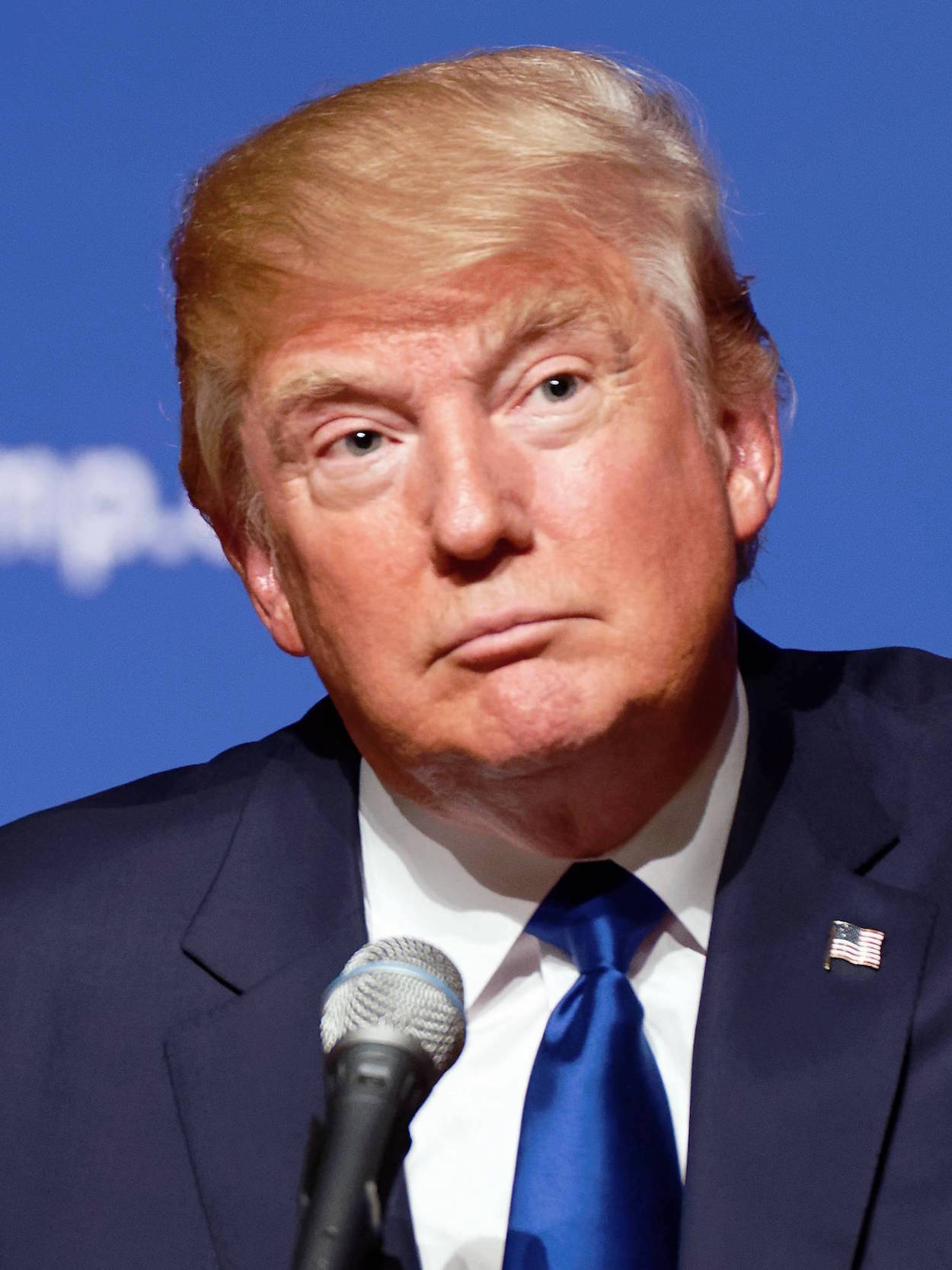 Donald Trump. Photo credit: Michael Vadon/CC
Donald Trump. Photo credit: Michael Vadon/CC
With ruptures in the Republican Party because of the divisive nature of Trump’s presidency, seeing as the American president traditionally also becomes the leader of the political party they were the candidate of, it is to be questioned whether Trump will be able to command the party he is now ostensibly the leader of. We will see as to the future of American politics then. But, given the status of America as a world power, it may be time to start asking deep questions about what a Trump presidency will mean for Taiwan and other Asia Pacific countries.
Lessons For Domestic Politics In Taiwan?
ULTIMATELY THE Trump presidency comes as a result of a crisis of the two party system in America and its broader causes in a shakeup of the global neoliberal order. During primaries, strong challenges to establishment candidates in the Democratic and Republican Parties came from Bernie Sanders and Donald Trump. Though the Sanders campaign eventually sputtered, between the Sanders campaign and Trump campaign, both shared the characteristics of being non-traditional, non-establishment candidates whose campaigns were run with the support of a mass movement. Both Sanders and Trump also arose after decades in which the Democratic and Republican Parties had become increasingly indistinguishable from each other, dominated by party elites from the inside as they are.
Sanders and Trump were candidates of the far Left and far Right, respectively, and we can view the simultaneous, dialectical rise of both as major challenges to party establishment candidates as suggesting a crisis in both the Democratic and Republican party establishments. But while the Sanders campaign sputtered, despite that it the first serious challenge to the Democratic Party establishment in a long time, with the Republican Party’s increasingly sharp rightward drift following the rise of the Tea Party, the Trump campaign was able to seize the reins of political power in the Republican Party. In particular, the Trump campaign took to new heights the racist, anti-immigration rhetoric increasingly embraced by the Republican Party in recent years, as most infamously reflected in his claim that he would build a wall separating America and Mexico, and this seems to have been been a major factor behind the Trump campaign’s success.
That Trump was able to win despite, by all accounts, a badly run and internally conflicted campaign reflects the dissatisfaction of American voters with traditional party politics, whether of the Democratic or Republican Party. This may return to the dissatisfaction of American voters with the economy and anxiety about America’s increasingly insecure place in the world.
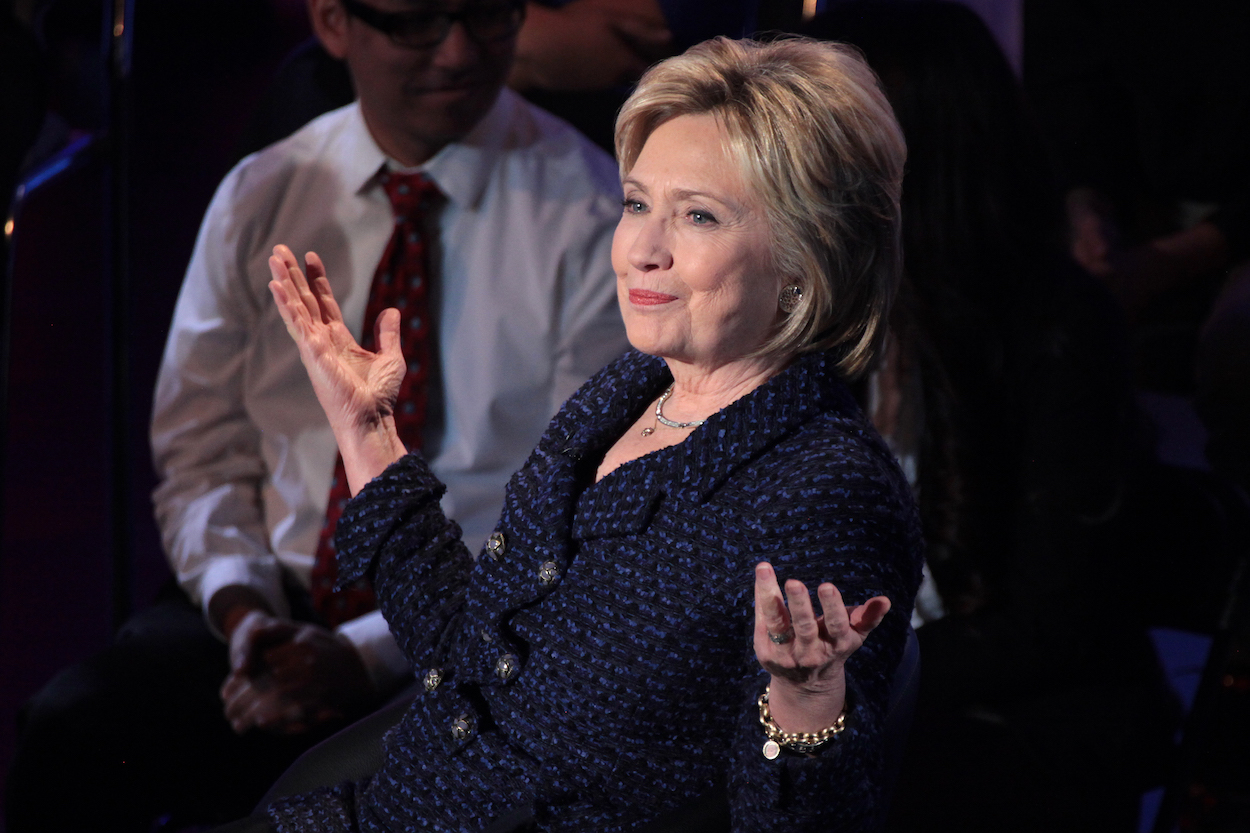 Hillary Clinton. Photo credit: Gage Skidmore/CC
Hillary Clinton. Photo credit: Gage Skidmore/CC
There has been some contention within the Left about whether Trump’s support base consists of disenfranchised middle class voters or working class voters, probably reflective of a debate about whether the political Left has lost the working class, and refusal to accept that the working class sometimes reacts to economic and political crisis by embracing nationalism. Certainly, even if the Hillary Clinton campaign’s victory had the support of minority voters more than the Trump campaign did, given Trump’s blatant anti-immigrant rhetoric, part of the Clinton campaign’s losses can be attributed to the disdain of the Democratic Party establishment for the working class as not worth the effort of making outreach to.
This was the arrogance of the Democratic Party in thinking that it would have an easy victory over Trump and its elitist disdain for American voters by assuming that the presidency was automatically Clinton’s. E-mails leaks from the Clinton campaign suggest that it had hoped that Trump would become candidate of the Republican Party, with the view that Trump would be an easy opponent for Clinton to defeat. Trump himself is a former Democrat and was once close to the Clintons. And the elites of the Democratic Party have unexpectedly had voters turn against them, when they saw themselves as deservedly winning. It seems likely that these same elites will attempt to discipline the Sanders insurgency now, with claims that the dissatisfaction against Clinton they stirred up cost the Democrats the presidency, as is already visible with smears against Jill Stein as an anti-vaccine candidate by the Democratic Party. That would be too predictable, but some bloodletting by the party establishment may be in short order.
Returning to the crisis of the global neoliberal order, the Trump victory and the sweeping victory for Republicans in the House and Senate reflects a shift rightwards for American politics overall. Again, racism, sexism, xenophobia, and homophobia are hardly dead in America, as reflected in the recent reinvention of white supremacy as the “alt-right”. The disproportionate killing of black youth as demonstrated against by movements as Black Lives Matter in recent years in America should be proof enough of that. And for many, it is easier to fall back on a knee-jerk, right-wing nationalistic response to economic and political crisis than anything else. The American people have spoken with present election results—and the results are not pretty, illustrating the continued prevalence of racist, sexist attitudes among the American people in their willingness to put a candidate in office who has openly expressed racist comments against immigrants and with a long history of sexual assault.
The world over has seen the election victories of far right-wing politicians on similarly xenophobic platforms to Trump in recent years, whether regarding the victory of Front National in France last year or the triumph of the Brexit vote in the UK earlier this year. Both were events accomplished with mass support, as a product of right nationalistic response. Indeed, the Brexit comparison would be an apt one, given that few expected the victory of Brexit much as few expected the victory of Trump. Despite its rightward aims, as a backlash against immigration in the UK, unfortunately it was that Brexit which would not have been possible without the support of some elements of the working class, even if it will be largely to their detriment. Like in wake of Brexit, we may now see a wave of sexism, racism, and homophobia in America, with the far right taking Trump’s victory to mean carte blanche for their actions.
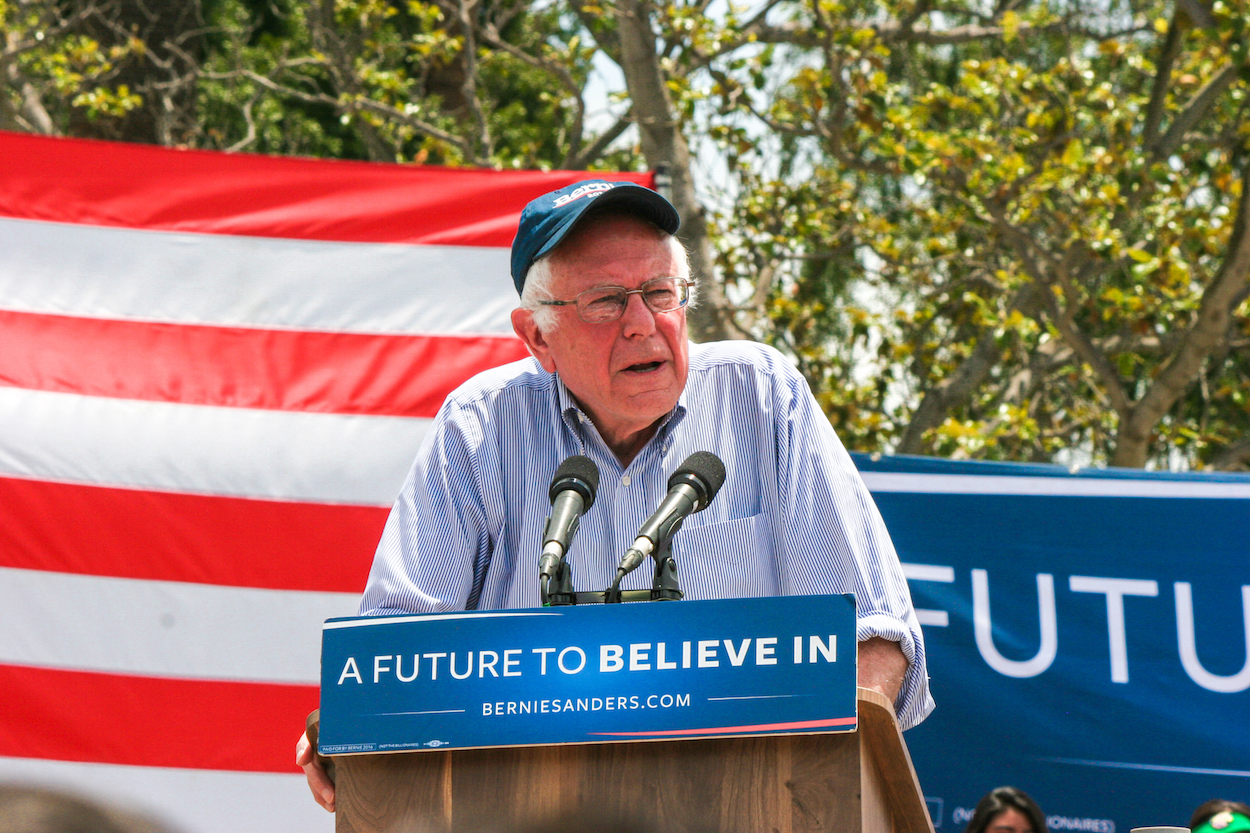 Bernie Sanders. Photo credit: Rev Dills/CC
Bernie Sanders. Photo credit: Rev Dills/CC
Trump is no different, hence why there is some truth to the claim that the simultaneous rise of Sanders and Trump represents the “Europeanization” of American politics. Such would be the crisis of the global neoliberal order, as reflected in the crisis of the two party system in America, with both parties becoming indistinguishable from one another, and resultant backlash from the far Left and far Right. And, as some have claimed, perhaps the election of Trump does in fact represent the emergence of a fascist movement in America seeing as the previously marginal forces of white supremacy have arrayed themselves behind him. European fascism in the early 20th century in itself was backed by many members of the working class in response to global economic crisis.
Given Trump’s inconsistent political statements from one moment to another, but that he won the presidency nonetheless, one has the sense that, perhaps what Trump has grasped which no previous American politician has grasped is that in our postmodern age: Facts truly do not matter so long as they sound good to the public in any given moment. With claims that Trump represents a form of American proto-fascism, this may return to the fact that Trump’s appeal came from his being a useful blank slate to project political desires onto for the masses, a characteristic of what Karl Marx described as “Bonapartism”, in itself a form of proto-fascism.
Through no direct comparison to Taiwan seems possible, given the additional factor of political identification as a major political cleavage in Taiwanese politics between the pan-Blue and pan-Green camps which causes Taiwan not to conform to the spectrum of typical left/right politics, the results of American elections offer valuable lessons for Taiwan down the line. With the DPP and the KMT becoming increasingly indistinguishable in policy now that the DPP is in power, future shakeups of the two party system are possible in Taiwan as well, particularly with the possibility of the KMT fracturing because of Hung Hsiu-Chu’s far right policies and splits within the DPP because of retrenchment by the Tsai administration. Political systems dominated by two major political parties tend to behave similarly. And, seeing as the rise of Trump was unthinkable a year ago, nothing is ever off the table when it comes to politics. Who knows? One of the lessons of 2016 elections is that one must always be on one’s guard where politics is concerned.
Implications For The Asia Pacific Of A Trump Presidency
MORE PRESSING would be the implications of the Trump presidency for the Asia Pacific. The issue of trying to understand Trump’s foreign policy would be that he barely seems to have any understanding of it, his policy claims flip-flopping wildly from one moment to the next, and Trump seeming to actual understand little of the facts of foreign policy. Clinton, as a secretary of state, was undoubtedly the more experienced candidate. Hence Clinton was supported by many members of the American security establishment, which sometimes interceded quite directly to speak on her behalf, never mind any obligation to political neutrality. But this was also because of her failures of accountability in running foreign policy, as reflected in the now infamous e-mail scandal which led to public backlash against her.
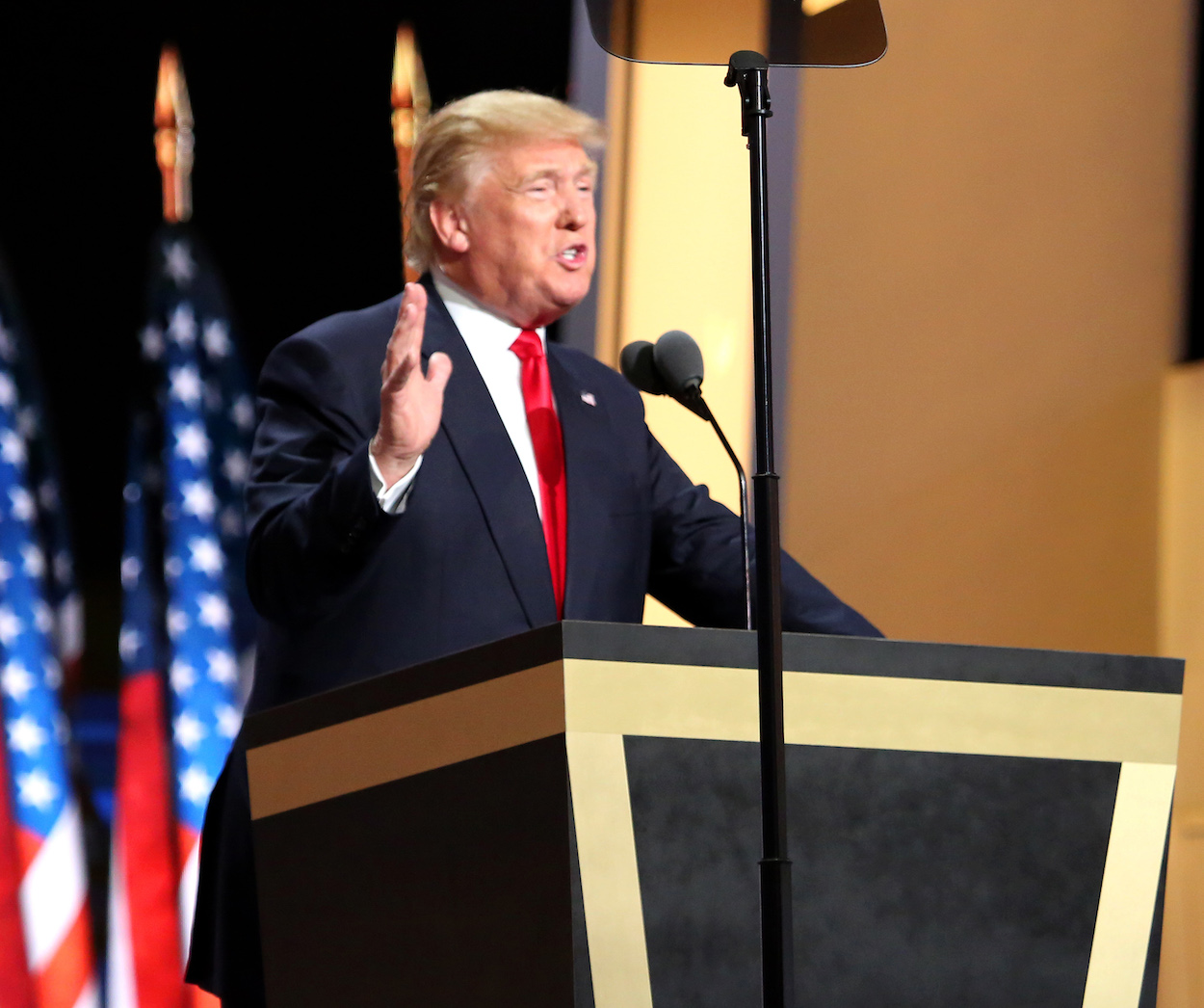 Photo credit: VOA
Photo credit: VOA
In his complete lack of consistent foreign policy and his general lack of factual knowledge of foreign policy, Trump’s claims about foreign policy claims to date have seemed mostly aimed at boosting his credibility on domestic policy. But, accordingly, if there is any coherent thrust to his foreign policy, it seems to be in the wholly in the service of protectionism. For example, as part of his protectionist rhetoric, claiming that will bring back manufacturing jobs to the US and take action against countries stealing jobs from the US, Trump has claimed that he will take a stronger stance against China, which Trump claims is unfairly rigging the economic system and “raping” America—never mind the reliance on Chinese manufacturing of companies owned by Trump. Paradoxically, however, Trump has also claimed that he will withdraw American troops from South Korea and Japan, which would allow China to fill the void left by the withdrawal of American power in the Asia Pacific region and overall be detrimental to the interests of American empire.
It is hard to square this contradiction. And, of course, Trump is now commander-in-chief, who has command of American foreign policy, as well the human being with America’s nuclear codes—never mind that during the last phases of his campaign, Trump had to have his Twitter account taken away from him to prevent him from posting ill-considered late-night Tweets that might sink his chances for election.
One generally has the sense that Trump has to date prioritized scoring points domestically more than formulating coherent foreign policy. When President Barack Obama visited Japan, for example, to cement stronger ties between the America-Japan security alliance, Trump took the opportunity to attack Obama for failing to mention Pearl Harbor, as aimed at pleasing his American nationalist constituency which has not forgotten the history of some 70 years ago. Again, Trump has stated that he views American bases in South Korea as South Korea freeloading off of America and a drain on American resources, never mind that the bill for many of America’s over 800 military bases worldwide is actually mostly footed by the host country. Along the same lines, in calling for South Korea to be self-dependent and not parasitic on the US, Trump also suggested that South Korea and Japan could arm themselves with nuclear weapons to defend against China and North Korea, though this would almost certainly heighten regional tensions to a breaking point.
How Will China React To A Trump Presidency?
FOR COUNTRIES in the Asia Pacific, caught between the two superpowers of America and China, the withdrawal of American power will mean China likely takes over American hegemony in the region. Such are the realities of being caught between two empires. This is the threat Trump presents. And governments in the Asia Pacific must now cope with the new reality.
When pressed on the possibility of how a Trump presidency would affect US-Japan relations, Japanese government statements in the past have usually demurred, stating their faith that whoever won the presidency would maintain the status quo once elected, never mind the heights of campaign rhetoric. There is, after all, the possibility that given Trump’s lack of foreign policy qualification, Trump may simply depend on the existing foreign policy establishment and so, in this way, there will not actually be a major shift regarding American foreign policy in Asia once he is president.
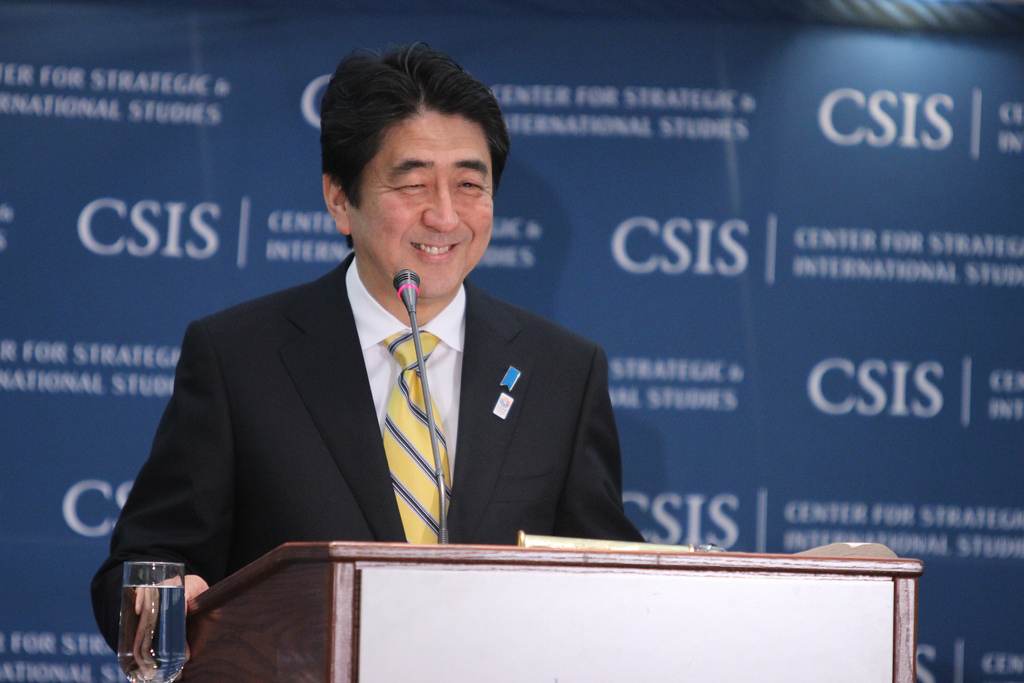 Shinzo Abe. Photo credit: Ajswab/CC
Shinzo Abe. Photo credit: Ajswab/CC
Indeed, some of Trump’s foreign policy claims made during elections are patently impossible, for example, regarding the physical impossibility of building a wall between America and Mexico and the diplomatic impossibility of making Mexico foot the bill for it. The removal of all US bases in the Asia Pacific, too, may be an impossibility, given that it may be physically impossible to remove all American servicemen and equipment in the Asia Pacific during Trump’s first term. As such, given these inconsistencies, the foreign policy of a Trump presidency, overall, remains opaque.
China has suggested that because of its opposition to American intervention in the Asia Pacific region, it would welcome a Trump presidency, even while at the same time it attacked the Trump campaign for its racist anti-Chinese rhetoric and suggest that the Trump campaign indicates the flaws of American democracy. Certainly, such claims from China will only continue in the future, even if Chinese state-run media has also claimed in recent days that it is certain the US-China relationship will not change regardless of whoever is president.
At the same time, however, despite claims echoed by Donald Trump and others that America has become overly dependent on China, the US-China economic relationship goes two ways. The realities of global economics are that China is also deeply economically tied to the US. The economic instability caused by a Donald Trump presidency, as reflected in the drop of global stock markets when his election victory became clear, could be detrimental to Chinese elites. Hence the support of Chinese elites for Clinton, despite that Clinton almost would have taken a stronger stance against China, as goes with her hawkish foreign policy.
In this vein, the stances China’s stance on Trump remain to be seen, returning to the opacity of the man himself. Despite Trump’s American nationalistic rhetoric, Trump is notably close with Vladimir Putin of Russia, for example, although Russia and America have traditionally been enemies going back to the Cold War. This is to the extent that there are conspiracy theories are even that Trump is acting as Putin’s proxy in the United States and is backed by him.
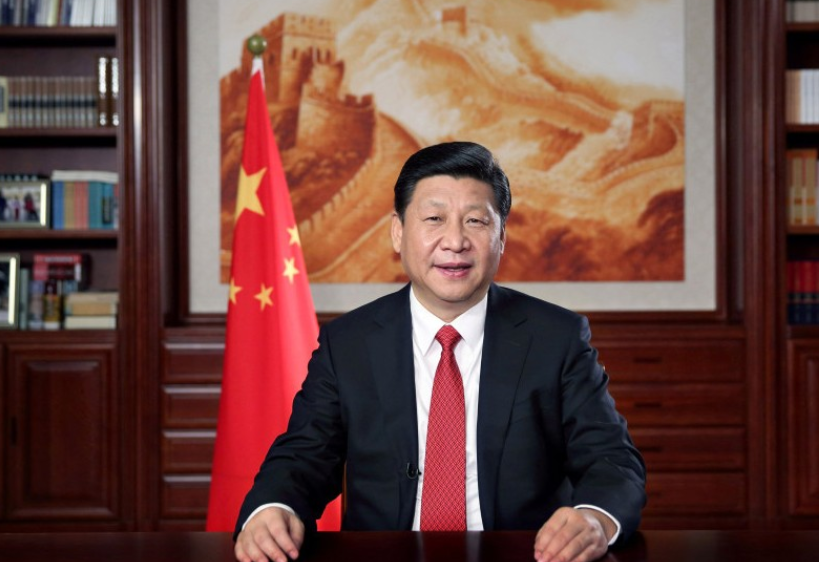 Xi Jinping. Photo credit:
Xi Jinping. Photo credit:
Regardless of such questions, because Trump makes America so unpredictable, how China will respond is also unpredictable. One is vaguely reminded of Richard Nixon’s Cold War era notion of “Madman Theory”, which sought to keep the Soviet Union in the dark about American actions by convincing them that Nixon was an irrational, unpredictable madman who made decisions on the spur of the moment—except now there is, in fact, what seems to be an actual madman at the helm of America.
What Now For Taiwan?
AS SUCH, given the unpredictability of the man himself, Trump could easily go the way of taking a stronger stance against China or taking a laxer stance on China. For a Taiwan seeking to build stronger security ties with the United States, the usual rhetoric aimed at appealing to Republican politicians of Taiwan being an democratic ally of the US in the region probably will not work, given Trump’s lack of interest in foreign interventions in the name of securing democracy in line with his protectionist rhetoric. Seeking admission to the TPP as a way of establishing economic ties with the US in return for stronger security guarantees is something Trump would oppose. Again, Trump has generally opposed policies of free trade and globalization as a drain on American resources, in favor of domestic protectionism, and opposes the TPP, having likened it to rape.
A revolt from within the Republican Party on these issues is possible, seeing as Trump may not act in line with other segments of the Republican Party despite Republican control of the House and Senate. Yet where Taiwan is concerned, putting all one’s eggs into only the basket of the United States as a security guarantee against China is now reaping unexpected consequences with a Trump victory. America was hardly a reliable partner from the onset, given that America backed authoritarian rule by the KMT for so many decades during the martial law era and has been happy to keep Taiwan in the political limbo since it switched political recognition from the Republic of China to the People’s Republic of China. But the consequences of a Trump presidency on Taiwan may actually be the logical outcome from pro-Taiwan political actors becoming wholly dependent on America as the sole guarantor of Taiwanese security against China, seeing as America can now no longer be depended upon, period.
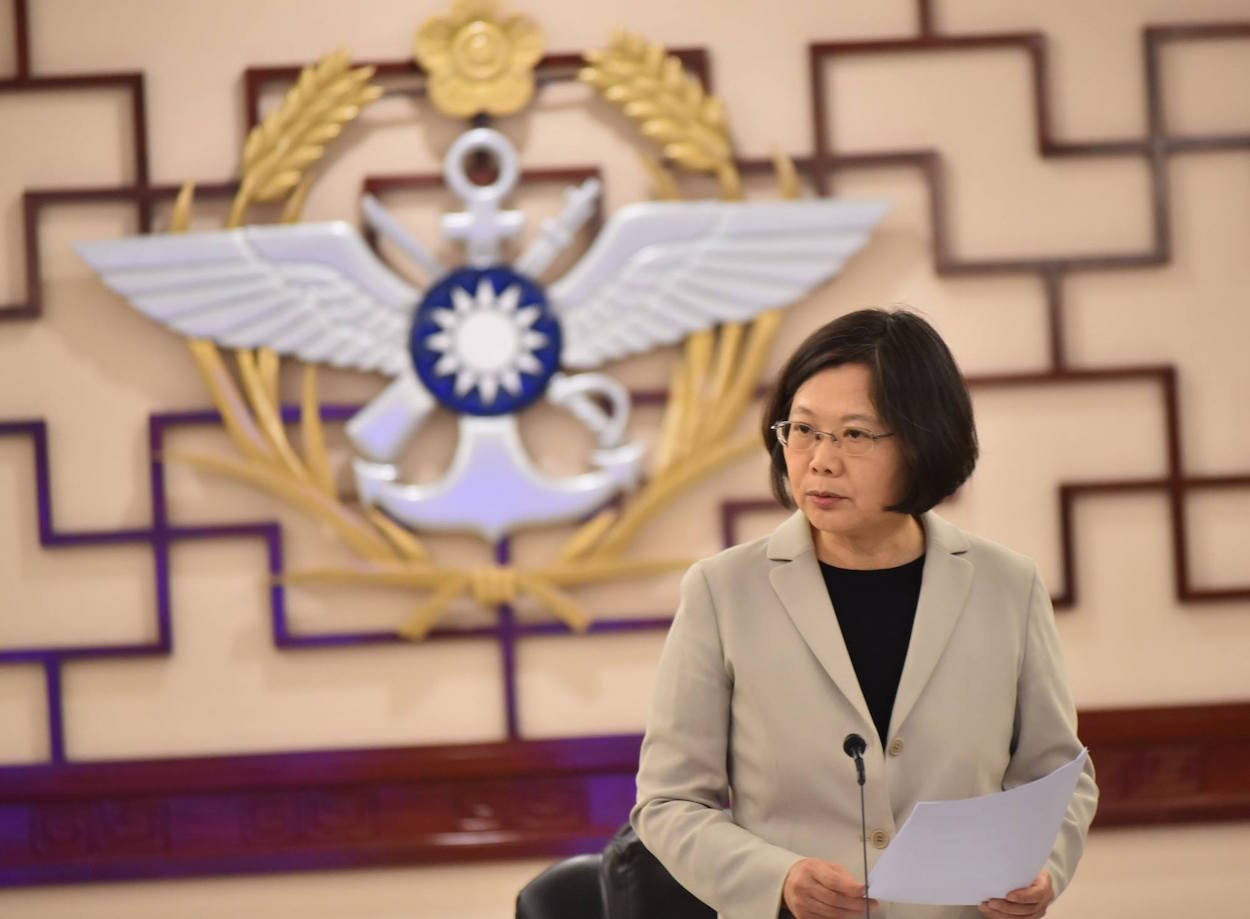 Tsai Ing-Wen. Photo credit: Presidential Residence
Tsai Ing-Wen. Photo credit: Presidential Residence
If the Tsai administration is intelligent, it will try to secure stronger ties with regional powers similarly caught between America and China, and who are now also caught in a dilemma with the rise of Trump making America an unreliable partner. Apart from South Korea and Japan, which face a similar quandary as East Asian countries strongly dependent on American security guarantees who may be left out in the cold under a Trump presidency, this may make the Tsai administration’s “New Southwards Policy” aimed at cementing political and economic ties with Southeast Asian countries to wean Taiwan off of economic dependence from China more urgent than ever.
Unfortunately, the New Southwards Policy has run into complications in recent months. And there would seem to now be need for Taiwan not to wean itself off of dependence of China—but also America. America can no longer be counted on under a Trump presidency and Taiwan will need to find allies elsewhere. Some have suggested that Taiwan taking action independent of the United States could be more dangerous than not, seeing as this removes Taiwan from the umbrella of American influence over its political decisions, and could lead to some bad choices. But that may be the only option for Taiwan. Taiwan could only count on itself to defend its sovereignty from the beginning, anyhow. The same is true of other Asia Pacific countries caught between America and China, seeing as China will only seek to take over America’s role of regional hegemony. Now may be the time for such countries to unite. The path is fraught.

